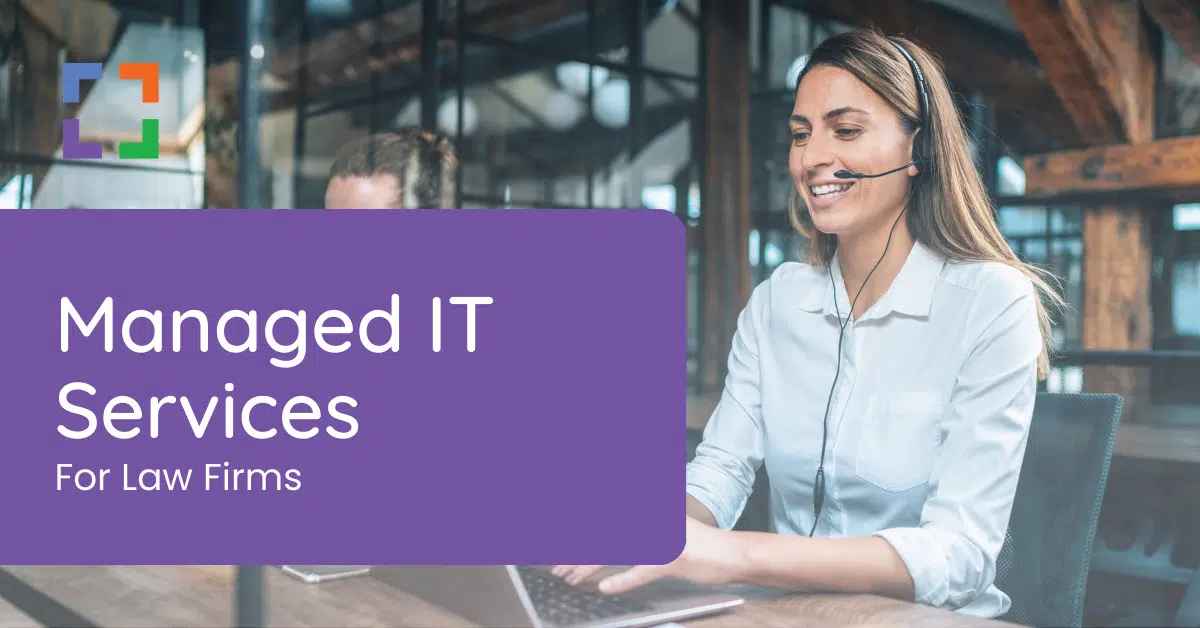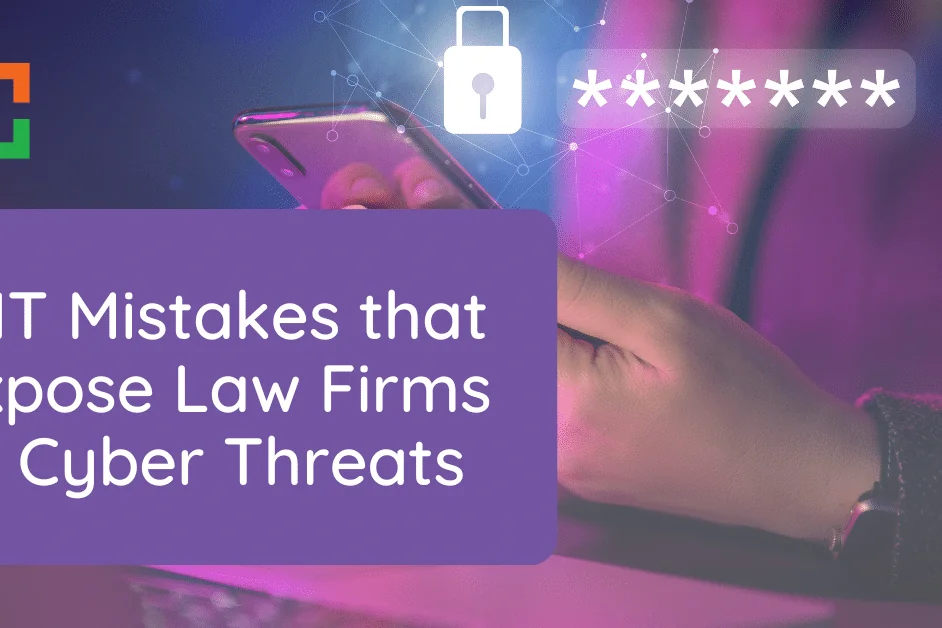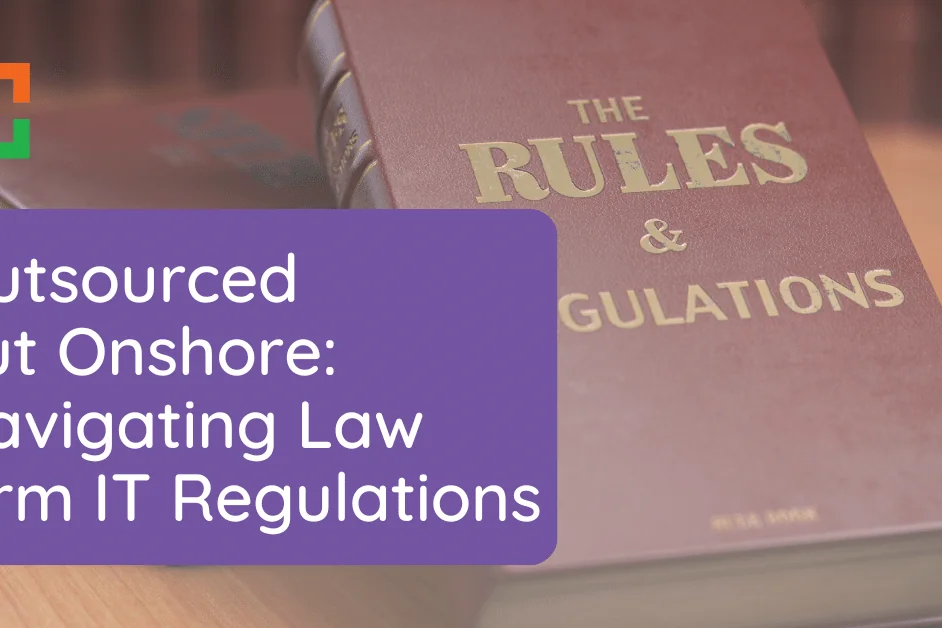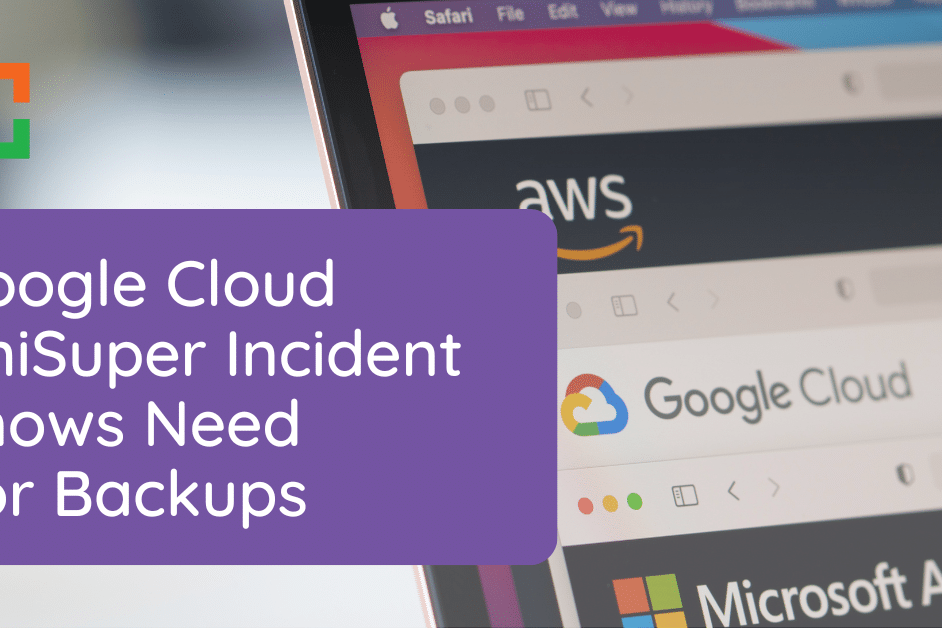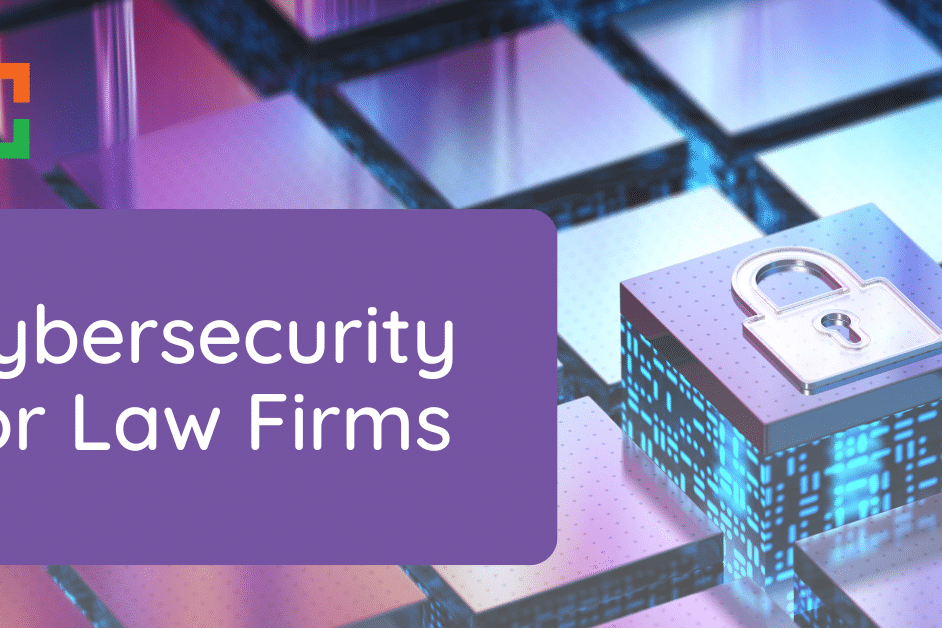Cybersecurity Risks for Law Firms: 5 Threats That Could Take You Down
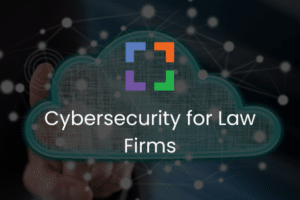
You hold sensitive client data, manage high-stakes negotiations, and operate under a strict code of confidentiality. This makes your firm a goldmine for attackers.
Even more troubling, nearly 1 in 5 firms are not sure whether they have been breached at all, according to the ABA’s latest cybersecurity report.
In this article, you will learn:
- Why cybercriminals are increasingly targeting law firms of all sizes
- The five biggest cybersecurity threats facing legal practices today
- How to proactively secure your firm without disrupting your work
Let’s start by understanding why law firms have a target on their backs.
Why Law Firms Are Prime Targets for Cyberattacks
Law firms have always been trusted gatekeepers of sensitive information. But that trust, and the data behind it, is exactly why more cybercriminals are zeroing in on the legal industry.
From solo practices to BigLaw, no firm is immune.
Your Data Is Gold to Hackers
Client data held by law firms is not just confidential. It’s high-stakes.
Think corporate merger documents, divorce filings involving child custody, class-action lawsuit evidence, medical malpractice records, even criminal defense strategies. Hackers know that leaking just one of these could disrupt a case, embarrass a public figure, or expose financial secrets.
This makes law firms incredibly appealing. They’re prime candidates for criminals looking to extort, blackmail, or quietly profit.
Reputation Is Everything
A law firm’s most valuable currency is trust. Clients expect absolute confidentiality, and when that trust is broken, it’s hard to earn back.
A breach does not have to be large to be damaging. Even one compromised inbox can lead to malpractice claims, broken client relationships, and negative press.
Consider this realistic scenario: A mid-sized firm loses a major corporate client after a paralegal’s email is compromised and used to send malware to opposing counsel. It doesn’t make headlines but it costs them a seven-figure relationship.
Security & Compliance are Non-Negotiable for Law Firms
With Uptime Practice Next, get:
- Multi-Factor Authentication
- Email Encryption
- Compliant Backups
- Desktop Protection
- Ransomware Protection
- and More!
You’re Seen as “Soft Targets”
Many firms still rely on legacy systems, shared passwords, or outdated antivirus software. Cybercriminals know this.
In fact, smaller law firms are often targeted specifically because they are less likely to have full-time IT staff or a managed cybersecurity partner. And the numbers reflect that.
According to the ABA’s 2023 Cybersecurity TechReport, only 34% of law firms have an incident response plan — a noticeable drop from 42% the year before.
Imagine a hacker gains access to a lawyer’s inbox during a real estate closing. They send revised wire transfer instructions to the title company, which looks legitimate. By the time anyone catches the fraud, the funds are long gone.
The firm could be legally and financially responsible, and the client relationship is probably unrecoverable.
The 5 Biggest Cybersecurity Threats Facing Law Firms
Law firms face many of the same cybersecurity threats as other industries. But the stakes are higher when client trust, case strategy, and financial data are on the line.
These five risks are the most common — and the most costly — for legal practices today.
1. Phishing and Business Email Compromise
Phishing emails are still the number one way attackers get into law firm systems. According to the FBI’s Internet Crime Complaint Center (IC3), Business Email Compromise caused over $2.9 billion in losses in 2023 alone.
These emails aren’t just pretending to be banks or vendors anymore. Some mimic clients. Others spoof opposing counsel or even court staff. One mistyped password or clicked link, and your firm could be wide open.
2. Ransomware Attacks
Ransomware encrypts your files and demands a payout to restore them. Some attacks now go further and threaten to publish sensitive data if the ransom isn’t paid.
The 2023 Verizon Data Breach Investigations Report highlights ransomware as one of the most common breach types affecting professional services, including legal.
For law firms, this often means lost client data, missed court deadlines, and a total operational shutdown.
3. Weak Passwords and Poor Access Control
Still using “LawFirm123” as your password? You’re not alone. A 2022 study by NordPass found that weak or reused passwords were a top factor in credential-based breaches.
Many firms also fail to enable two-factor authentication. That means once someone gets in, they can access everything: billing, communications, court filings, even confidential strategy docs.
Related – The Real Value of Legal Specialty in IT Services: You’re a law firm, so you should logically choose IT support that knows how to actually support you. Learn more.
4. Lost or Stolen Devices
Laptops and phones go missing. If they aren’t encrypted or locked down, they’re compromised.
Remote work and travel have made this risk worse. A single misplaced device can expose hundreds of client records.
You wouldn’t leave a filing cabinet full of case files in a cab. But without proper device security, that’s basically what’s happening.
5. Shadow IT and Unauthorized Apps
Staff using Dropbox, Gmail, or WhatsApp outside your approved systems might seem harmless. But these tools often lack encryption, logging, and proper access controls.
According to a 2023 report from Netwrix, 75% of organizations experienced data loss due to users storing data in unauthorized apps or locations.
If you don’t control the platform, you can’t protect the data. And when something goes wrong, there’s no audit trail to follow.
Real-World Examples of Law Firm Breaches
Law firm breaches are not rare. They happen every year, and the fallout is serious. These real examples show how quickly a cyberattack can turn into a business and legal crisis.
Grubman Shire Meiselas & Sacks (2020)
In May 2020, the prominent entertainment law firm Grubman Shire Meiselas & Sacks suffered a ransomware attack by the REvil group. The attackers claimed to have stolen 756GB of data, including contracts, nondisclosure agreements, and personal correspondence of high-profile clients like Madonna, Bruce Springsteen, and Lady Gaga.
They demanded a $21 million ransom, threatening to release the sensitive information if unpaid.
Campbell Conroy & O’Neil (2021)
In February 2021, the U.S. law firm Campbell Conroy & O’Neil experienced a ransomware attack that compromised personal data, including Social Security numbers, passport numbers, and payment card information.
The firm, which represents Fortune 500 companies, disclosed the breach in July 2021 and offered affected individuals credit monitoring services.
Multiple Canadian Firms (2023)
A series of ransomware attacks in 2023 targeted Canadian law firms, highlighting the global scope and sophistication of such threats.
The Canadian National Cybercrime Coordination Centre reported that over 2,000 requests for assistance were made between 2021 and 2023, with approximately 55% involving ransomware incidents.
Breaches like these trigger lawsuits, regulatory investigations, and major damage to a firm’s reputation. Even if you survive the breach, rebuilding trust is a long road.
Related – Managed IT Services for Law Firms: Whenever you’re ready, we’re here to managed your IT. Read this article to learn more about the value of outsourcing your IT to a professional.
How to Protect Your Law Firm from Cyber Threats
You don’t need to be a tech expert to run a secure law firm. But you do need the right protections in place, and the right people helping you manage them.
Work With an IT Partner Who Knows Legal
Most general IT companies don’t understand how law firms actually operate. They don’t know your case management software, your compliance requirements, or how critical your deadlines are. You need someone who does.
Look for a provider that supports legal tools, understands your workflows, and helps prevent problems before they happen.
Train Your Team (Regularly)
Most breaches start with human error. Someone clicks the wrong link. Someone sends data to the wrong email. Someone reuses a weak password.
Regular training helps your staff spot phishing emails, avoid risky behavior, and protect client information. It’s one of the most effective ways to reduce risk.
Use Strong Authentication and Encryption
If your systems don’t use two-factor authentication, they should. The same goes for encrypted email and secure file sharing. These are basic requirements now, not extras.
Make sure client data is protected on every device, in every email, and in every app your firm uses.
Have a Cyber Incident Response Plan
You need a plan in place before something goes wrong. Who do you contact? What systems need to be shut down? How do you notify clients?
Having a response plan saves time and reduces damage. Without one, you’re left scrambling.
Uptime Practice Can Help
Uptime Practice provides managed IT services built for law firms. We handle cybersecurity, compliance, cloud systems, and day-to-day support. Our team keeps your firm protected and running smoothly so you can focus on practicing law.
Would You Rather: Serve Clients or Manage IT?
Use Uptime Practice Next for:
- Unlimited IT Support
- Legal Software Consultation
- Cloud Storage
- Security Protection
- Data Backups
- and More!
Final Thoughts: Don’t Wait for a Breach to Take Action
Cyber threats are not just an IT problem. They are a business risk that can impact your clients, your reputation, and your bottom line. Waiting until something goes wrong is the most expensive way to handle cybersecurity.
Cybersecurity Is a Business Risk, Not Just an IT Issue
A breach doesn’t just affect your computers. It affects client trust, case outcomes, and your ability to keep the firm running. Cybersecurity needs to be part of your overall risk management strategy, not something left to your IT team alone.
Small Firms Aren’t Exempt
Hackers don’t just go after large firms. In fact, smaller practices are often targeted because they tend to have fewer protections in place. No matter your size, your data is valuable — and your reputation is on the line.
Start with a Cybersecurity Audit
You don’t have to fix everything overnight. Start by understanding where your risks are. A cybersecurity audit can show you where your firm is vulnerable and what steps to take first.
Law Firm Cybersecurity FAQ
Start with high-impact, low-cost basics: enable two-factor authentication, use strong unique passwords, and partner with an IT provider who understands legal. Cybersecurity for small law firms doesn’t have to mean huge spend — it means smart protections.
Wire fraud. Hackers often target real estate lawyers by compromising email accounts and intercepting wire instructions. To prevent this, use encrypted email, verify instructions by phone, and train staff to spot spoofed messages.
Signs include unusual login activity, clients reporting strange emails, or files missing or locked. If you’re unsure, bring in a legal-focused IT provider to run a quick audit or risk assessment.
Yes — while not always spelled out as “cybersecurity,” lawyers are bound by confidentiality and duty of care. That means securing client data is not optional. Some jurisdictions also require incident reporting.
Activate your cyber incident response plan. If you don’t have one, isolate affected systems, alert your IT provider, and start documenting what happened. Prompt action reduces both legal and reputational damage.
Uptime Practice:
The IT & Cloud Platform for Law Firms.
Uptime Practice is a suite of Managed IT and cloud services, made exclusively for law firms.
Practice Next
Technology + Legal Software Support for Modern Law Firms
Practice Next is a suite of Managed IT, Legal Software Support, and Cloud Essentials, made just for law firms.
-
Practice Next is a suite managed IT, technology essentials and legal software support.
-
Practice Next includes unlimited IT and legal software support, Microsoft 365, legal-centric cloud storage and more.
-
Practice Next pairs great with cloud-based legal software such as Clio Manage, CosmoLex, MyCase and more.
Practice Go
Cloudify Your Legal App
Does your law firm already have a cloud strategy, but have one premise-based application still running on onsite servers? Practice Go is for you.
- With Practice Go, we effectively turn your desktop/server- based legal software into a cloud application (a Published App), freeing your firm from the limitations of traditional software.
- Practice Go can cloudify your PCLaw, Time Matters, Tabs3, ProLaw, Juris, QuickBooks and more.
Practice Foundation
Complete Private Cloud for Law Firms
If your law firm needs a central, secure cloud platform for all of your legal software, documents and data, Practice Foundation is for you.
-
Practice Foundation is an end-to-end cloud platform that will host all of your firm's applications and documents, and will optionally include Office 365 + unlimited IT support. Everyone in your firm logs into a Virtual Desktop where they'll find all of their apps and docs.
-
Practice Foundation works with PCLaw, Time Matters, Tabs3, ProLaw, Juris, QuickBooks, Timeslips, TrialWorks, Adobe Acrobat and more.
Not Sure Which Edition You Need?
No problem. Check out our quick Comparison Chart for Uptime Practice, or Get in Touch to talk with our sales team.

Dennis Dimka
As the founder and CEO of Uptime Legal Systems, I've had the privilege of guiding our company to become a leading provider of technology services for law firms.
Our growth, both organic and through strategic acquisitions, has enabled us to offer a diverse range of services, tailored to the evolving needs of the legal industry.
Being recognized as an Ernst & Young Entrepreneur of the Year Finalist and seeing Uptime Legal ranked among the Inc. 5000 list of fastest-growing private companies in America for eight consecutive years are testaments to our team's dedication.
At Uptime Legal, we strive to continuously innovate and adapt in the rapidly evolving legal tech landscape, ensuring that law firms have access to the most advanced and reliable technology solutions.
Related Posts
August 22, 2025
How to Create a Disaster Recovery Plan for Your Law Firm
January 20, 2025
5 IT Mistakes that Expose Law Firms to Cyber Threats
September 26, 2024
Outsourced but Onshore: Navigating Law Firm IT Regulations
May 29, 2024
The Real Value of Legal Specialty in IT Services
February 28, 2024
Law Firm Disaster Recovery and Business Continuity Planning
December 15, 2023

